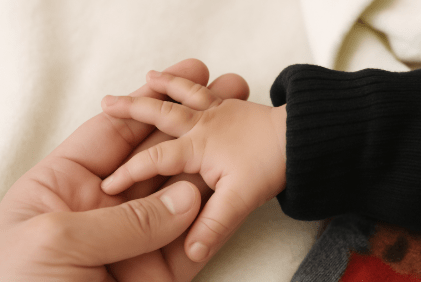Council slammed after judge finds expert testimony “factually inaccurate” in child protection case
Parents in Croydon came dangerously close to having their children taken into care after the local council relied on flawed and inaccurate medical evidence in a child safeguarding case described by lawyers as a “disaster.”
The family court case, which centred on three young siblings referred to as A, H and Y, all under the age of three, revealed critical failings in how Croydon Council handled the investigation.
The court heard that the council’s expert, Dr Nicola Cleghorn, not only delivered a flawed medical assessment but even confused the names of the injured children during proceedings.
Deputy High Court Judge Kathryn Major delivered a damning verdict, slamming the council for basing its case on “close-minded” and inconsistent evidence. She found no sign of abuse or neglect and ruled the mother was “clearly devoted to her children.”
In her judgment, she warned of the serious risks involved when child protection cases are built on unreliable medical evidence.
“Children could be removed from perfectly safe home environments, or alternatively, children at risk could remain placed with abusive carers,” Judge Major said.
The court heard that H had been taken to hospital in March 2023 after experiencing breathing difficulties. Subsequent scans revealed multiple injuries, including 11 rib fractures and a broken shin. Y had a fractured collarbone and visible marks, while A showed no injuries.
Croydon Council claimed the injuries were “non-accidental” and sought care orders for all three children.
The parents insisted the injuries were caused accidentally. The mother had fainted, falling on H, and later attempted to resuscitate her. Y’s injury, they explained, occurred when her bassinet tipped over and the mother grabbed her to prevent a fall.
However, their explanations were largely dismissed by the council’s medical expert, Dr Cleghorn, who concluded the injuries were inflicted. Yet under cross-examination, she admitted her work had been “appalling” and apologised for not exercising proper diligence.
Dr Cleghorn’s errors were central to the case. She confused the identities of the injured children, failed to review vital growth data, overlooked natural marks on their skin, and did not assess alternative medical explanations.
Notably, she also dismissed child A, in the 99.6th percentile for weight, as “slight”, undermining the possibility that he could have unintentionally caused bruising to his siblings.
During questioning, she later conceded that A’s size and lack of coordination could indeed explain some of the injuries.
Judge Major said the cross-examination of Dr Cleghorn was “nothing short of a demolition,” and no further scrutiny from other parties was needed.
The court also heard that the mother, who has a borderline IQ and does not speak fluent English, faced major communication hurdles. Interpreters were provided, but for the wrong language. At one stage, police relied on the father to translate for her, a move the judge deemed inappropriate.
Some official documents were mistranslated, compounding confusion. The mother was never properly challenged on her version of events, nor was she asked if she had failed to protect her children.
Despite giving limited evidence, the father’s testimony was also found to be honest, if lacking detail. Judge Major concluded the overall care provided to the children had been “exceptionally positive,” with no signs of ongoing harm, abuse, or instability in the home.
Despite the mounting evidence against their case, Croydon Council pressed ahead with their reliance on Dr Cleghorn’s flawed report in final submissions. The judge ultimately dismissed all allegations and refused the care orders.
“Dr Cleghorn’s approach in this case is a cause for serious concern,” Judge Major added. “There are real-world consequences for children where the professional medical evidence is flawed, factually inaccurate, and lacking in enquiry and analysis.”
A spokesperson for Croydon Council responded: “We take our responsibility for safeguarding children very seriously. Due to the injuries and the expert advice that was presented, we acted appropriately to fulfil our legal safeguarding duties.”
Key Takeaways:
- Croydon Council’s care order application, based on flawed medical evidence was rejected.
- Expert witness confused children’s identities and failed to consider alternative causes of injuries.
- Judge found no evidence of abuse and described parental care as “exceptionally positive”.
- Serious concerns raised over safeguarding procedures and the handling of vulnerable families.
This case highlights the critical need for thorough, unbiased assessments in child protection matters, where mistakes can tear families apart.






